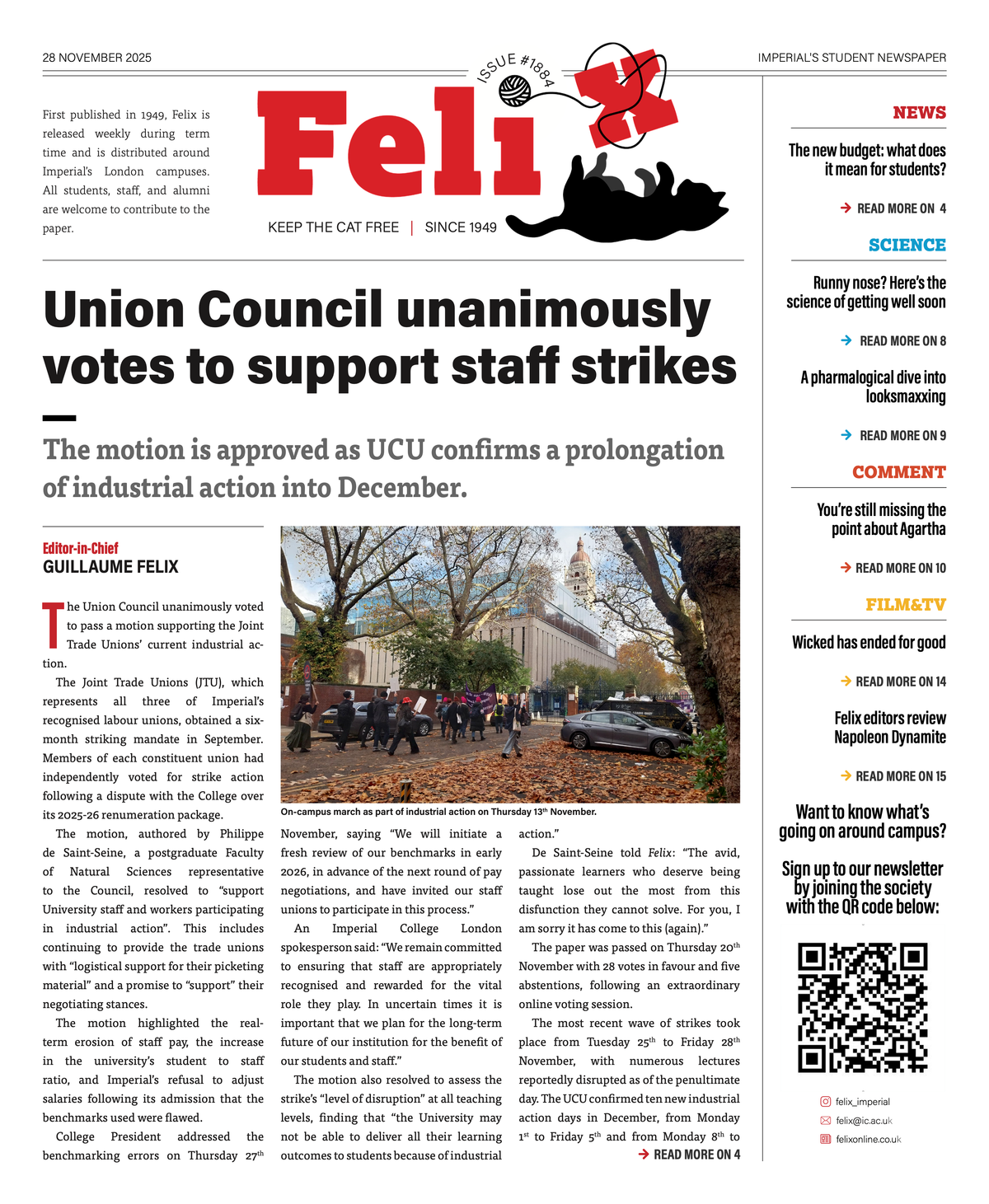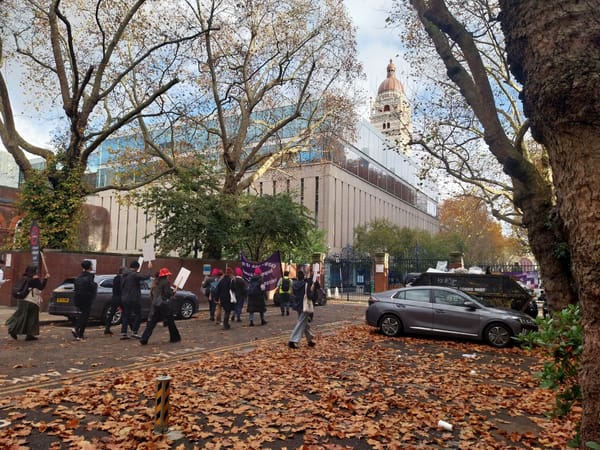Win some, lose some: breaking down the 2026 budget
Government balances reintroduction of maintenance grants with new tariff on international student fees.
After a series of policy U-turns, the Labour government has presented its second budget since taking power. Chancellor Rachel Reeve’s plan has huge national significance, raising the tax burden to an expected record of 38% of GDP with the intent of creating a fiscal buffer on the backdrop of sluggish growth. We break down the parts that concern higher education.
A tuition cap uplift
As announced in October, the caps for tuition fees charged by English universities will rise in the next to two academic years. The eight-year cap freeze was first lifted in the 2025-2026 academic year, with fees expected to rise with inflation projections in coming years.
For institutions with a Teaching Excellence Framework and Access and Participation Plans from the Office for Students (OfS), such as Imperial, the fee cap for full-time courses will be raised to £9,790 for the 2026-27 academic year and then to £10,050 for 2027-28.
Changes to loans and repayment thresholds
Just like tuition fees, maintenance loans will rise will inflation projections to support home students’ living costs, starting with a 2.7% increase for the 2026-27 academic year.
Home students and graduates on “Plan 2” loans will see their repayment threshold frozen from April 2027 onwards at the cap of £29,385. This affects students who started their degrees between September 2012 and July 2023. Students on these loans would pay 9% of their earnings above the cap as part of their repayment plan. However, the threshold freeze means more students – even those earning close to minimum wage – would have to start paying back their student loans earlier.
The OBR estimates the freeze would raise around £400m a year, as “a higher proportion of income is subject to repayment and a higher interest rate”. In addition, the interest rate for Plan 2 loans – which usually ranges between 3.2% and 6.2% – would also be frozen until 2030.
A reformed tax on international fees goes through
This has been expected since the government’s immigration policy paper in May. However, the tax will not be a 6% levy on international fees, but rather a fixed cost of £925 per student, with first 220 students of the institution exempt. The flat fee will come into effect from August 2028 and increase with inflation in following years.
Since Imperial had just over 10,700 overseas students between undergraduate and postgraduate degrees in the 2023-24 academic year, back-of-the envelope math suggests that the levy would come at a direct cost of about £9,7 million were it enacted today. Given that total overseas fee income amounted to £366 million in the same period, that’s roughly equivalent to a 2.6% tax.
The policy is expected to generate about £445 million it its first year, while the sector should lose about £270 million when accounting for the cost transferred directly to students. Imperial pledged not to increase overseas fees as a response.
Maintenance grants reintroduced
The government is reintroducing maintenance grants for students from disadvantaged backgrounds from 2028-29. The maximum grant will stand at £1000 per year for students from households earning at or below the minimum threshold (currently £25,000 per year), paid on top of maintenance loans.
The grant will only be available to current or new students in courses “aligned with the government’s missions” – a list of these is expected to be released before the grant’s introduction. It is meant to be funded by the international student fee levy.
The sector’s reaction
Universities were generally unfavourable to the levy on international fees, with Imperial President Hugh Brady saying the College had “lobbied hard” against it prior to the budget.
Malcolm Press CBE, President of Universities UK, an advocacy organisation for higher education institutions, said the budget “rightly puts skills and innovation at the heart of the country’s future prosperity”. He welcomed the reintroduction of maintenace grants but was critical of the overseas tuition levy, which he said would end up “limiting [universities’] ability to support UK students”.
Dr Tim Bradshaw, Chief Executive of the Russell Group, warned that “many financial challenges remain” in spite of announcements on research funding and what he called the “positive” decision to increase tuition fee caps. He predicted that the overseas tuition levy would have a “significant impact on universities’ ability to invest in teaching, research and communities”.
Read our full breakdown at felixonline.co.uk.











